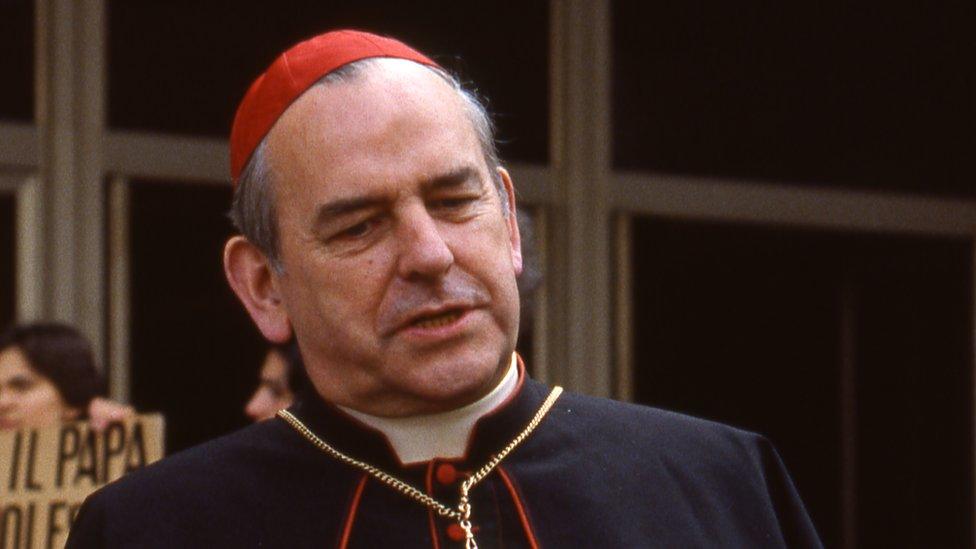Blue plaque honour for Fermanagh World War Two heroine
- Published
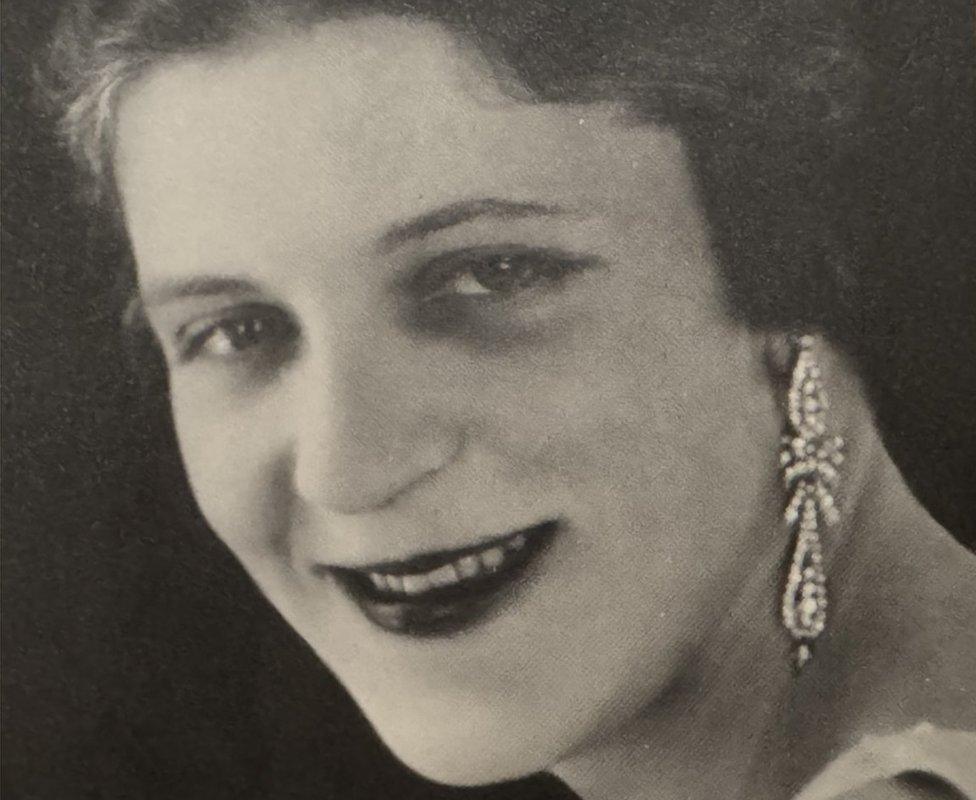
Monica de Wichfeld was a glamorous socialite who worked with Coco Chanel before World War Two began
A World War Two heroine who grew up in County Fermanagh has been commemorated with an Ulster History Circle blue plaque.
Monica de Wichfeld was a leading member of the Danish resistance against Nazi occupation.
She was arrested and sentenced to death and died in a German concentration camp in 1945 aged 50.
The plaque was unveiled at Kinawley and Holy Trinity Parish Church in Derrylin, close to her childhood home.
Her family was of Ulster-Scots heritage, and she was the great-aunt of Lord Dunleath of Ballywalter, County Down.
"To see this plaque here now as a memory to her, as we don't have anywhere to go for the family to grieve or to remember, to have these plaques is just very, very special indeed," Lord Dunleath said.
Born Monica Massy-Beresford in London in 1894, she lived at St Hubert's, Geaglum on the shores of Upper Lough Erne.
She married a Danish diplomat, Jorgen de Wichfeld, and they travelled around Europe.
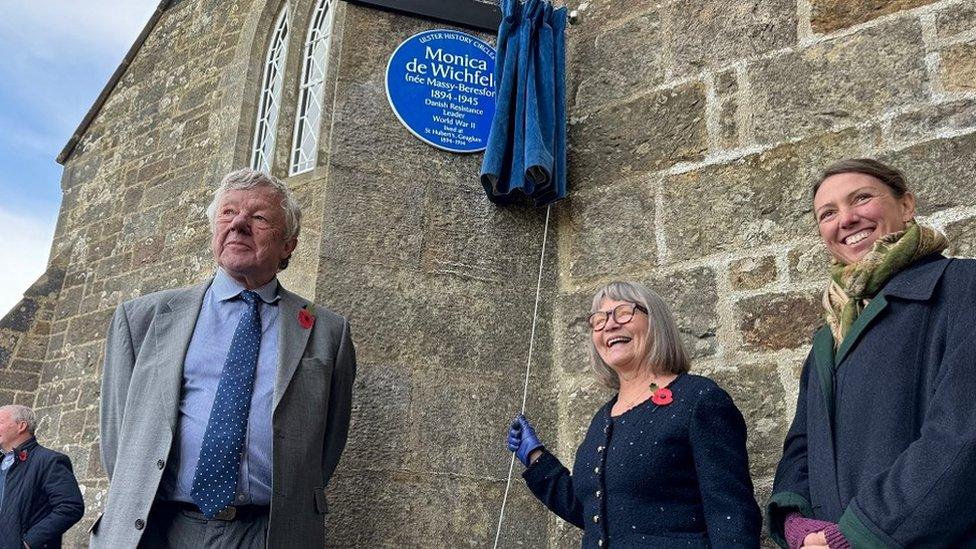
The plaque was unveiled at a church in Derrylin, close to Monica de Wichfeld's childhood home
She socialised with high society, including Noel Coward, and developed a line of beauty products with Coco Chanel.
However the outbreak of World War Two transformed her glamorous lifestyle.
She moved to her husband's estate in occupied Denmark where, without his knowledge, she became an active member of the resistance.
Her heroic deeds included helping to save the lives of Royal Air Force (RAF) airmen shot down over Denmark, assisting in their safe return to Britain.
She also hid refugees and members of the Jewish community who were being sought by the Gestapo.
In I944 she was betrayed, arrested and sentenced to death.
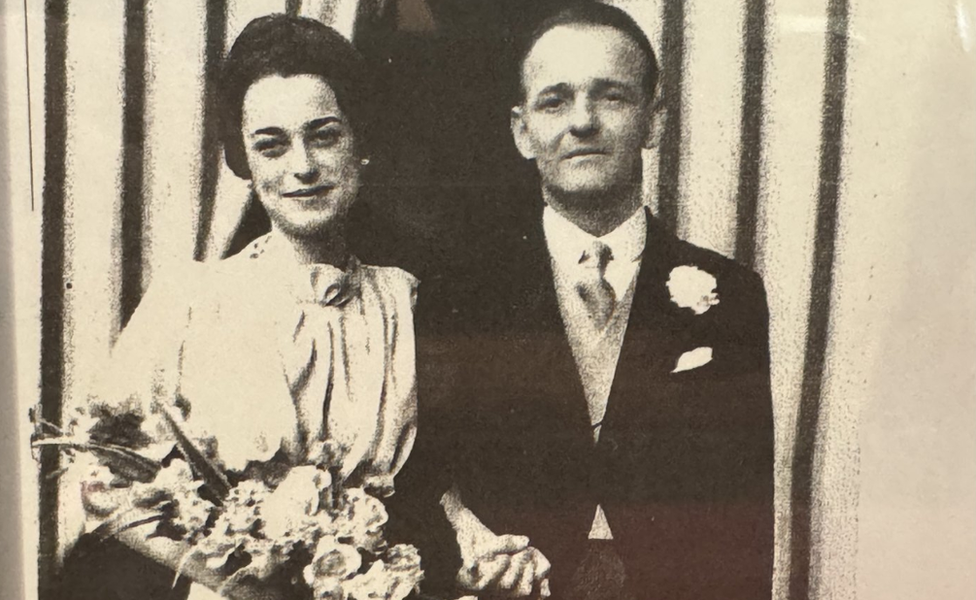
The 1916 wedding of Monica Massy-Beresford and Jorgen de Wichfeld, an aristocrat and secretary of the Danish Legation
It is reported that on hearing the death sentence, she brought out her powder and lipstick and asked: "Will that be all gentlemen?"
Following an appeal from the Danish Royal family, her sentence was commuted to life in prison but her health deteriorated in captivity.
She contracted tuberculosis and she died of pneumonia on 27 February 1945 in Waldheim Prison Concentration Camp in Germany.
Her body was never found.
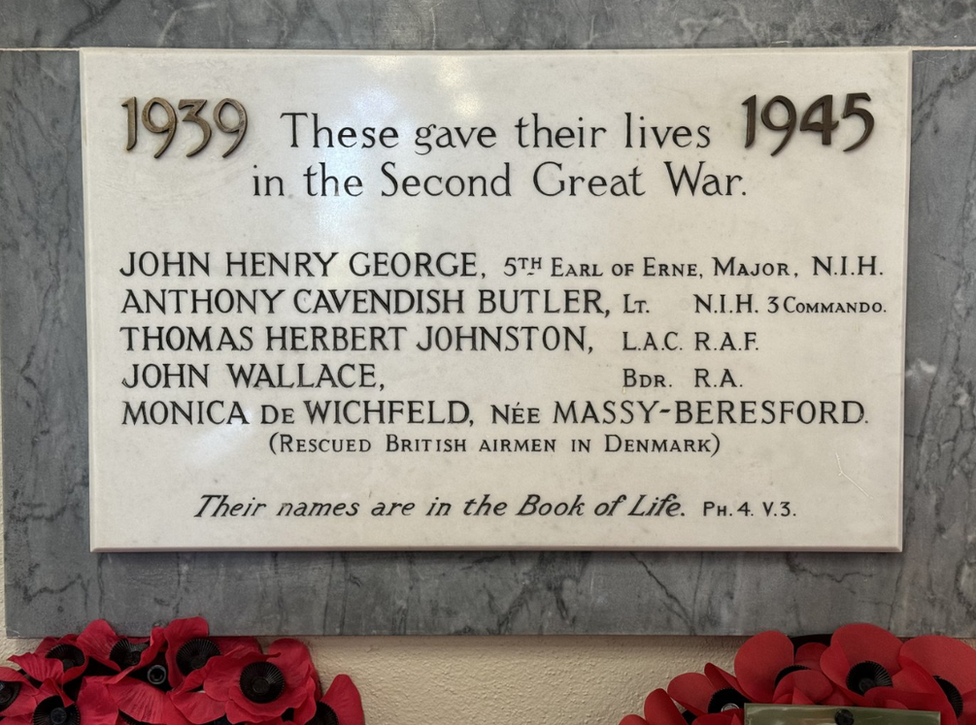
Monica de Wichfeld's name was already on the Roll of Honour in the Derrylin church
Lady Dunleath, whose own father was a Danish resistance leader, unveiled the blue plaque at a Remembrance Day service in Derrylin.
Alongside her niece, Lady Dunleath performed a traditional children's song which Danish resistance fighters sang.
"It means fight for everything you hold dear, die if you must and with this principle neither life nor death will be so hard," she said.
Maud Hamill from the Ulster History Circle said she only became aware of Monica de Wichfeld's "amazing" life through the Ulster-Scots Agency which funded the blue plaque.
It is the 270th blue plaque to be unveiled by the society which aims to tell the stories of people from the nine counties of Ulster who would otherwise be forgotten.
Related topics
- Published3 November 2023
